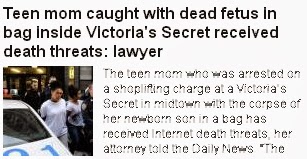Here at Holy Family, this celebration of Christmas is particularly joyful as it is our first Christmas in our newly renovated church. With the renovation comes the additional blessing of now having the space to place our Nativity in our sanctuary for the first time in many years. Up until now it was displayed in the back of the church. Its presence in the sanctuary enhances our focus on the profound mystery of the Lord’s birth in the most humbly of environments.
This image of the manger in the stable is one that we have come to take
for granted. It is now very common to us
but it came about because of the piety of Saint Francis. In 1223 – three years before he died Francis
asked the Pope for permission for a special ceremony. In the outdoors with real live stock and a
child in the manger Mass was celebrated amidst this living nativity. It touch the hearts of the people and the
friars because even then Common sense would say that the Son of God, the
messiah does not belong here in a stable.
What Saint Francis sought to teach, however, was that none of the world,
nor the most impoverished of humanity is beneath the dignity of Christ. No one can say to this newborn, “You don’t
belong here,” because he chooses to be here in the stable but on the cross that
hangs above it as well. The Father
chooses and the Son accepts his place amongst sinful and dirty people.
 As I looked at our nativity the donkey resting behind Mary caught my
attention and reminded me of song on one of my family’s Christmas albums
called, the Ballad of the Christmas
Donkey
As I looked at our nativity the donkey resting behind Mary caught my
attention and reminded me of song on one of my family’s Christmas albums
called, the Ballad of the Christmas
Donkey Long ago, in another day,
A donkey cried in his donkey way,
I'm not beautiful, I'm not beautiful,
What good to anyone am I.
Or rare or filled with an animal song,
But I'm not beautiful, I'm not beautiful,
What good to anyone am I.
Heaven cried...donkey you can carry,
Will you carry Mary...angels for your guide.
On Christmas morn', in the stable hay,
The donkey smiled in his donkey way,
I feel beautiful, I feel beautiful,
As beautiful as anyone am I....
As..beautiful..as..anyone...am......I
.
There are a number of examples in our Christmas stories of those who
don’t fit in, Rudolph the Red Nose Reindeer, Buddy the Elf and this Christmas
Donkey. I think this is so because even
if we have come to accept that our Lord and Savior belongs in a manger. We
sometime have a hard time believing that we belong “here” – in church, at the
manger in the companionship of the Lord.
Because I know that I’m guilty of a heavy sin, I’m caught up in addiction,
I’ve been away from church, I don’t know how or can’t pray – I doubt or do not
believe at all – I feel that I don’t
belong here. What we must understand
though is that the child in the manger, the condemned on the cross says to you
– You belong here
The Birth of the Savior is a moment that changes everything. The dignity of the earth is raised; it is not
God forsaken but God’s dwelling place. The human body, though vulnerable is
chosen as the temple of the Lord. Our
prayer this Christmas is that we may know that we do in fact belong here and to
him as he has chosen to belong to us.
A classic Christmas carol tells us that this is a Holy Night, because
it is the night of our dear savior’ birth.
But as importantly the hymn tells us it is the night when the soul felt its worth. May every soul who celebrates this
Christmas day – celebrate because he or she has come to feel his or her worth.
We do belong here, as does he who took on human flesh, so that we many
know and share in the building of His Kingdom.
Merry Christmas!










